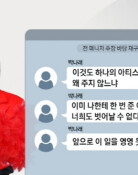Expectations and apprehension on Koizumi administration
Expectations and apprehension on Koizumi administration
Posted April. 25, 2001 19:53,
Japan`s former health minister and incoming president of the ruling Liberal Democratic Party (LDP) Junichiro Koizumi, is positioned to become prime minister tasked with steering the course for the country. Known for being reform-minded and for his dynamism, he has been chosen by the Japanese people to re-invigorate the nation, which has been stricken by a decade-long stagnation.
This time, the election marked a sharp contrast with the previous ones, which were characterized by partisan and factional alliances. His success can be attributed to his impressive appeals for reform in the ruling LDP and for economic recovery. However, he will have to hurdle intra-party factional wrangling, highlighted even more during the resignation of outgoing Prime Minister Ichiro Mori and endless tunnels of economic slowdown.
Our immediate concern is whether he will be able to form a ``dream cabinet,`` doing away with the old practice of designating ministerial posts based on preferential treatment of long-term parliamentarians. Should he give in to the factional bosses` own choices for the three key party posts and cabinet appointments for the sake of party unity, he would greatly disappoint the people. And if this happens, the Japanese people`s aspirations for a stable and strong government will be frustrated.
Meanwhile, the Korean government and its people have both expectations and apprehension over the incoming Koizumi administration. His pro-reform and open-minded character is expected to positively affect Japanese politicians` distorted view of history and their reckless remarks in this regard. Yet, his remarks and activities during the recent campaign for the LDP presidency cast a dark cloud over future relations between Korea and Japan.
In the course of his campaign, he portrayed himself as a conservative regarding issues related to national security, the Constitution and ideologies. Specifically, he made clear his commitments to a strengthened national defense and the early constitutional amendment fit for the 21st century. He also openly stated that he would visit the Yasukuni Temple, mortuary tablets of Japanese war dead and World War II criminals. With regard to Korea`s requests for revisions of the distorted accounts in history textbooks that the Japanese government had authorized, he contended that Korea was being unreasonable and was interfering in domestic affairs by making the demand.
If he continuously make similar statements, his administration is expected to face protests from Japan`s Asian neighbors, particularly Korea and China. If the Koizumi government takes the chauvinistic path to restore whatever has been lost during the last 10 years, casting off a liberal and friendly view of the world and its neighboring countries along the way, this could spell a misfortune not only for Japan but also for other Asian countries.





![‘친구’란 말에, 치매 아버지는 고향땅 800평을 팔았다[히어로콘텐츠/헌트①-上]](https://dimg.donga.com/c/138/175/90/1/wps/NEWS/IMAGE/2025/12/14/132961909.1.jpg)
![10번 북송된 그녀, 73만 유튜버 되다…탈북 유튜브 ‘유미카’ 뒷이야기[주성하의 북에서 온 이웃]](https://dimg.donga.com/c/138/175/90/1/wps/NEWS/IMAGE/2025/12/12/132938957.1.jpg)
